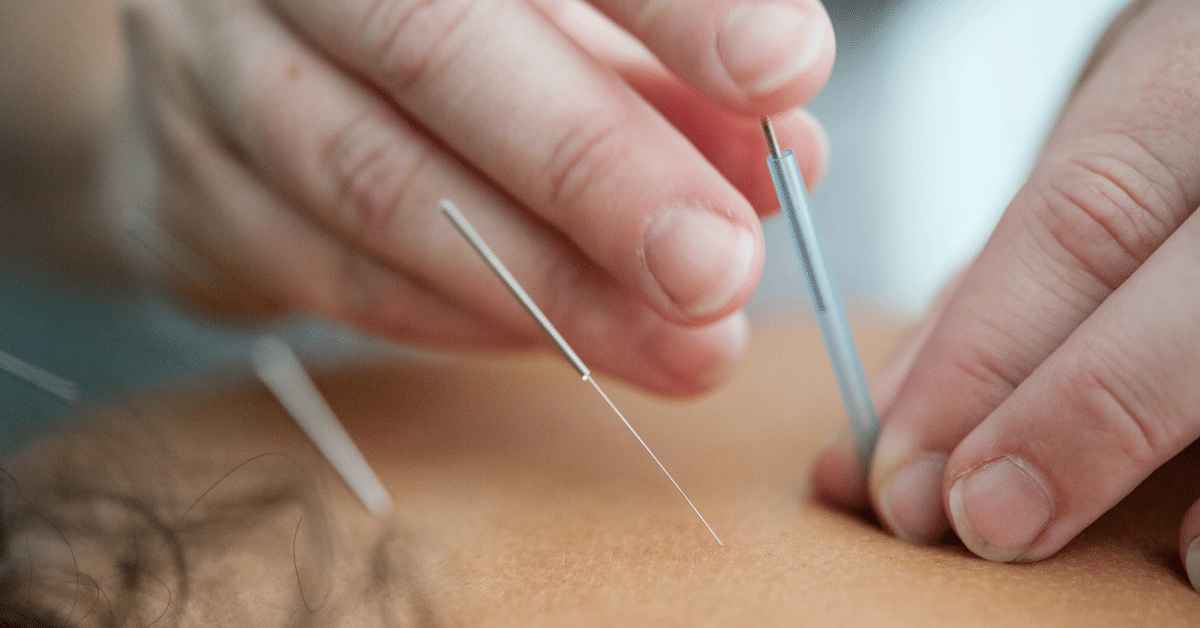Acupuncture: How it Works And Why It’s Great
In acupuncture, very thin needles are inserted into the body as supplemental medicine. Needles are inserted at various points and depths by trained professionals. Pain isn’t the only ailment acupuncture may help with though. The mechanism by which it operates, however, is not well understood. There are many who think it has a neurological effect, while others who think it works by restoring harmony to the body’s vital energy. The purpose of this article is to explain what acupuncture is, how it might work, and the potential advantages and hazards associated with the treatment.
What is Acupuncture?
Acupuncture is the practice of inserting thin, solid, metallic needles into the skin. The needles are then moved in specific ways by the practitioner’s hands or stimulated by electricity. Studies have shown that acupuncture can help with a wide range of health problems. Not everyone can benefit from acupuncture. If you decide to see an acupuncturist, talk to your doctor about it first and look for a licensed professional who has the right training and credentials.
What’s the Philosophy Behind Acupuncture?
Acupuncture is a part of Traditional Chinese medicine, which has been around for a long time. Practitioners of traditional Chinese medicine think that the body has more than 2,000 acupuncture points that are linked by pathways or meridians. These pathways allow energy (called “Qi,” pronounced “chee”) to move through the body and keep it healthy. Disease can happen when the flow of energy gets messed up. By putting needles in certain places, acupuncture is thought to improve the flow of Qi and, in turn, health.
What Does Acupuncture Feel Like?
Needles as thin as hair are used to do acupuncture. Most people say that they don’t feel much pain when the needle is put in. The needle is put in until it feels like there is pressure or an ache. During the treatment, the needles may be warmed or given a mild electric current. People say that acupuncture gives them more energy. Some people say they feel calm. When the needle is not put in the right place, it can hurt. To stop infections, needles must be sterilized. That’s why it’s important to see an acupuncturist who is trained and experienced. The FDA has rules about acupuncture needles, just like it does for other medical devices. These rules are called “good manufacturing practices” and “sterility standards for a single use.” Acupuncture points can also be stimulated without the use of needles in a variety of ways, such as:
- Moxibustion
- Acupressure
- Friction
- Cupping
- Electromagnetic energy impulses
How Does Acupuncture Affect the Body?
It’s widely believed that acupuncture can stimulate the brain and neurological system. The result is a chemical response in the brain, spinal cord, and muscles. These metabolic shifts may enhance both physical and mental health by triggering the body’s innate capacity for repair. Acupuncture has been demonstrated to be successful in treating a variety of illnesses, including nausea, addiction, menstrual cramps, and others, in research conducted by the National Institutes of Health (NIH).
Also Read:
What Kinds of Problems Can Acupuncture Help With?
Chronic discomfort from conditions like arthritis and back trouble has led many Americans to try acupuncture. However, acupuncture’s scope of application has broadened in other regions of the world. Consult your medical professional before beginning acupuncture treatment. The most common reason people turn to acupuncture is to alleviate the pain that comes with medical problems like:
- Fibromyalgia
- Labor pain
- Headaches, including tension headaches and migraines
- Dental pain
- Osteoarthritis
- Neck pain
- Lower back pain
- Chemotherapy-induced and postoperative nausea and vomiting
Acupuncture: What to Think About Before Choosing It
Acupuncture is still controversial because scientific studies haven’t fully explained how it works within the framework of Western medicine. When deciding whether or not to try acupuncture, it’s important to be careful.
- Talk to your doctor about acupuncture first. Not everyone can benefit from acupuncture. Talk to your doctor about all the treatments and medicines (prescription and over-the-counter) you are using. Make sure to tell your doctor if you have a pacemaker, are at risk for infection, have long-term skin problems, are pregnant, or have breast or other implants. If you don’t talk about these things, acupuncture could be dangerous for your health.
- Do not believe what an acupuncturist says about your health. If a doctor has given you a diagnosis, you may want to ask him or her if acupuncture could help.
- Choose an acupuncturist who has a license. Your own doctor may be a good person to talk to about finding a practitioner who is licensed or certified. Friends and family may also be able to give you good recommendations. The American Academy of Medical Acupuncture can give you a list of doctors who practice acupuncture, even though not all certified acupuncturists are also doctors.
- Think about prices and insurance. Before you start treatment, you should ask the acupuncturist how many treatments you will need and how much they will cost. Some insurance plans pay for acupuncture, but others don’t. Before you start treatment, you should find out if your insurance covers acupuncture.
Summary
Acupuncture is an alternative medicine practice with deep roots in Chinese medicine. Small needles are inserted to stimulate the body’s neural network in certain areas. Chronic pain, osteoarthritis, headaches, and migraines are just few of the conditions that have shown improvement under acupuncture’s care. There is minimal chance of adverse effects from acupuncture, and the practice requires certification from an accredited professional.




